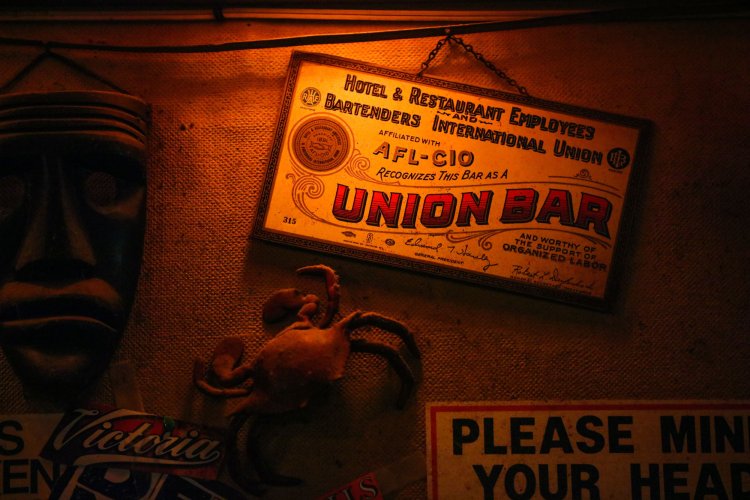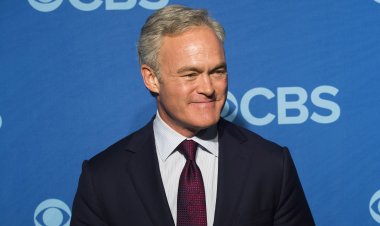Labor's Influence Challenged by Tight Budgets in Democratic-Leaning California Cities
Due to Trump's funding cuts and economic instability, cities nationwide are expected to encounter similar difficulties.

Los Angeles Mayor Karen Bass, another strong ally of labor, recently indicated she may need to reduce 1,600 city jobs.
Meanwhile, unions in San Francisco are gearing up to resist potential cuts as Mayor Daniel Lurie, a newcomer to the political scene, prepares his first budget amid a significant budget gap exceeding $800 million.
The challenging fiscal scenarios and economic unpredictability afflicting several major Californian cities will challenge the relationships that Democratic mayors have with a crucial civic force: public employee unions. Cuts to federal funding during the Trump administration, combined with concerns about a recession, have intensified the pressures on local and state budgets, creating a landscape ripe for contentious spending disputes.
“They can't roll over. They can’t give grace, if you will,” said Lorena Gonzalez, leader of the California Labor Federation, regarding labor leaders. “They've got to push for alternative ways to fill budgets in bad years. That is their job.”
The strains unfolding in California may serve as an early indicator of challenges that other Democratic-led cities throughout the nation could face, all grappling with economic instability and significant declines in federal support. For instance, Chicago anticipates a $1 billion budget shortfall for 2026, leading Mayor Brandon Johnson to clash with the city's largest unions. Similarly, the new mayor of Portland, Oregon, is engaged in negotiations with organized labor over a $93 million deficit.
These impending conflicts could shape the electoral landscape for Bass, whose path to reelection in 2026 has become more challenging since the January wildfires. They will also set the tone for the tenures of Lee, who assumes office next month, and Lurie, both of whom have been elected on promises of stability but are now faced with daunting negotiations. Additionally, San Diego Mayor Todd Gloria is grappling with a similar situation, confronted by a budget shortfall exceeding $300 million.
While Lurie is relatively unknown to organized labor, both Lee and Bass have longstanding commitments to union support. This history may ease some friction, but it won’t prevent labor leaders from fiercely defending jobs.
“For any elected official, balancing the books while keeping that support intact is truly the ultimate test of their political skill,” said Jeremy Oberstein, a Democratic strategist and veteran of Los Angeles City Hall. “That especially rings true during a crisis. It's not just about cuts, it's about whether you can lead without abandoning that coalition that got you to the dance.”
Labor unions are crucial players in Democratic politics, contributing significant funds to campaigns and facilitating essential voter turnout efforts. This support played a critical role in Lee's victory over a more moderate candidate, who contended that Lee’s union backing tied her to insiders who had harmed the city’s finances. One union's endorsement of Lee specifically highlighted an impending contract dispute.
“Oakland is pretty much dominated by special interests,” noted longtime political consultant Larry Tramutola, “and the special interests in Oakland are the labor unions who have been on the winning side of the mayor’s race for years.”
Lee rejected these criticisms, asserting that her unique ability to mediate among Oakland's political factions and face hard truths in a special election following the former mayor's recall positions her well. She campaigned on her capacity to unite stakeholders during turbulent times and draw external financial assistance from business, philanthropy, and state resources.
“It will take all of us, including people who do not always agree — labor, business, and community organizations — working together to transform Oakland,” Lee stated.
In a display of unity, the Chamber of Commerce director is co-chairing Lee's transition team alongside Alameda Labor Council Executive Secretary-Treasurer Keith Brown. The two were seen together at Lee’s inaugural press conference.
“We reached out to our members, the working families in Oakland, and they’re looking for a leader that can bring people together in making the tough decisions and not just blame the problems of our city on the working people of Oakland,” Brown remarked in an interview, “but at the same time be able to analyze all of the information and to make those hard decisions.”
The economic landscape is grim, with Oakland facing a budget shortfall recently estimated at $87 million. While a newly approved sales tax increase may provide some relief, the city is projected to spend far more than it collects in tax revenue in the long run. A leaked document from last year suggested that Oakland could be at risk of declaring bankruptcy, a situation that will confront Lee as she takes office.
“The budget is going to be very, very unkind to [Lee]. She’s going to be inheriting all of it but will still be expected to wave the magic wand she’s perceived to have built over the past few decades in Congress,” warned political consultant Jason Overman, not affiliated with either mayoral campaign. “This existential budget crisis has a funny way of shortening political honeymoons.”
Tensions are already evident, with some unions blaming police overtime for escalating costs, while the Oakland police officers' union claims its members are being unfairly targeted. This labor group is concerned that the city lacks a realistic approach to increasing its police force to meet a recent ballot mandate requiring 700 officers, as Lee has promised.
Moreover, looming federal budget cuts amplify labor’s argument that their Democratic allies must support beleaguered public employees and safeguard essential public services against the backdrop of the Trump administration’s actions.
“We have a federal government that clearly is anti-worker, so it’s a double whammy,” stated SEIU 1021 President Theresa Rutherford, whose union firmly supported Lee and is mobilizing against cuts across the Bay Area. “If you lay off the workers who do the work and affect the resources of the city, there’s no way that city can thrive.”
Lee possesses considerable advantages, including her longstanding ties to labor, and she has the city council's backing, with acting Mayor Kevin Jenkins expressing that members “will be aggressive about implementing” Lee’s early action plan.
“If she asks for concessions, because of her reputation and the support she has among council members, the council will back her up,” asserted former Oakland Council Member Dan Kalb, who supported Lee. “If it’s not just the mayor but her and the council together in lockstep, I think the public employee unions will say, ‘OK, we’ll see what we have to do to compromise.’”
However, the challenges extend beyond the immediate fiscal year, as former Mayor Libby Schaaf highlighted the city's grim long-term outlook, including a credit downgrade that could inflate borrowing costs for the foreseeable future.
“Oakland just never says no,” Schaaf noted. “It’s going to be tough times for years now, and the city needs to be more realistic about what its priorities are.”
Bass’ partnership with organized labor was instrumental in her 2022 mayoral victory, with unions contributing over $6 million to independent expenditures to support her campaign against billionaire developer Rick Caruso.
Currently, as her 2026 reelection approaches, Bass finds herself in a politically precarious position, exacerbated by ongoing public dissatisfaction regarding her management of January’s devastating wildfires. A recent poll conducted by the UCLA Luskin School of Public Affairs indicated that, nearly four months post-fires, her approval ratings have dropped, with an unfavorable rating increasing by 17 points from the previous year.
Earning labor’s support will be critical for her political recovery. In office, Bass has significantly benefited unions by securing favorable contract agreements for city workers, including police and fire personnel. Her administration framed these agreements as crucial pay raises necessary for city employees’ ability to afford living in expensive Los Angeles while also bolstering the police force.
These arrangements appear to have solidified Bass’ alliance with labor. Amid public outrage regarding her initial handling of the fires, several unions, including SEIU, the largest public-sector union in Southern California, publicly defended Bass against the criticism. Even the police officers' union, which previously supported her opponent and spent $3.4 million against her, has endorsed Bass for reelection already.
Her recent budget proposal threatens to push the boundaries of labor's patience. The city is facing a staggering deficit of approximately $800 million, driven by escalating personnel expenses, decreasing tax revenues, and costly liability payouts. To address the financial gap, Bass has proposed more than 1,600 layoffs.
Bass is no stranger to making difficult cuts, having confronted a $42 billion budget shortfall during the Great Recession as Assembly speaker. At that time, she and her fellow legislative leaders received the John F. Kennedy Profile in Courage Award for navigating a politically sensitive budget agreement, an experience that allies believe will serve her well during this current crisis.
“I'm not saying it's easy — it's not,” remarked John Pérez, a former Los Angeles labor leader and later Assembly speaker. “But she's got the most skill set to act on it, and a lot of goodwill from people who know that she's not approaching cuts out of a desire to cut, but more out of a need to balance the budget of the city.”
In her State of the City address last week, Bass directly addressed public employees, calling them “the city’s greatest asset,” as she broke the news about potential job losses and promised to seek assistance from Sacramento to mitigate the impact.
During her recent trip to the state Capitol, Bass’s schedule included meetings with legislative leaders and the presidents of two significant labor organizations in California — the California Labor Federation and the SEIU state council — but did not include a meeting with Governor Gavin Newsom, which raised eyebrows among budget analysts in Los Angeles.
In response to her budget proposal, the largest public-sector union indicated it was prepared for a confrontation. David Green, president of SEIU 721, representing more than 10,000 city workers, asserted his commitment to fighting for “every single one of these jobs.”
Some veterans of City Hall view the rhetoric from both sides as typical budget negotiation posturing, with each party establishing their maximum positions prior to negotiating a compromise. Budget analysts are already speculating about the possibility of deferring the union’s annual cost-of-living increase as a way to generate savings without resorting to significant layoffs.
Interestingly, Bass has received more criticism from liberal city workers' unions than from the more conservative public safety unions, who are spared from layoffs of sworn officers under her budget strategy.
According to Tom Saggau, a spokesperson for the Los Angeles Police Protective League, the union has chosen to remain calm regarding Bass’s plan — even with calls to cut hundreds of civilian positions within the police department — because they believe the actual number of layoffs will ultimately be lower than the initially proposed 1,600.
“We're taking the budget process at this early stage for what it is, the first step,” Saggau stated. “We're not firing off salvos as if the end of the world is coming because it's too soon for that.”
It remains uncertain whom the liberal public-sector unions might support in next year’s mayoral election should they look beyond Bass. Despite her challenged position, Bass has not faced any challengers yet, and those contemplating the race, particularly Caruso, would likely position themselves to her right, not exactly the alternative unions would desire.
For Bass, the concern is not so much that organized labor would select another candidate to endorse, but rather that disheartened unions might refrain from engaging in the mayoral race altogether.
Bass dismissed any political implications while addressing reporters during her visit to Sacramento.
“My issue is about solving an $800 million deficit,” she stated. “It is not about my reelection.”
In San Francisco, Lurie faces similar dilemmas, yet his political landscape differs as an outsider arriving in a city renowned for its intense factional strife. Unlike Lee, he stepped into office without a substantial connection to unions. Coming from the Levi Strauss family, he primarily financed his campaign himself, reducing his reliance on labor or business financial backing.
Now, he is striving to establish trust and goodwill with unions that remain cautiously observant, all while negotiating an $800 million budget shortfall. Lurie has implemented a hiring freeze as part of his initial measures.
“In Oakland, labor, because of the long history we have with the mayor-elect, we’re less skeptical,” commented Jim Araby, strategic campaigns director at UFCW Local 5, who was part of Lurie’s transition efforts. “In San Francisco, it’s an open question, and I do think the mayor is trying to bridge those divides.”
Labor has focused its attention on large corporations like Airbnb that are seeking to recover tax revenue they claim is owed. Unions have encouraged Lurie to back efforts to persuade these businesses to withdraw their lawsuits. In December, before Lurie took office, he achieved a notable success by mediating a hotel workers’ strike, and he has agreed to delay a back-to-work mandate after negotiations with labor representatives.
“He’s going through the learning curve right now,” remarked Rutherford of SEIU. “Labor has indicated to him that we are a partner, and that is a relationship we’d like to forge going forward.”
Lurie’s budget negotiations will also unfold against the backdrop of a transformed Board of Supervisors, following a voter-driven shift towards a more moderate majority, influenced by well-funded centrist groups, potentially making labor less aligned with Lurie's administration.
“He was fortunate in some of the turnover of the Board of Supervisors,” noted Board President Rafael Mandelman, adding that Lurie may enjoy greater latitude since he won as an outsider and is “sort of beholden to no one.”
Whether labor's relationships with these mayors are nascent, as in Lurie’s case, or deeply rooted, as seen with Bass and Lee, the forthcoming budget cycle will be a critical test of their ability to maintain solidarity while successfully navigating the fiscal challenges ahead.
“It's gonna be tough. But good policy is good politics,” Pérez stated. “You can't be so worried that your friends aren't going to love you that you make irresponsible choices. You still have a responsibility to be responsible.”
Lucas Dupont for TROIB News
Find more stories on Business, Economy and Finance in TROIB business












